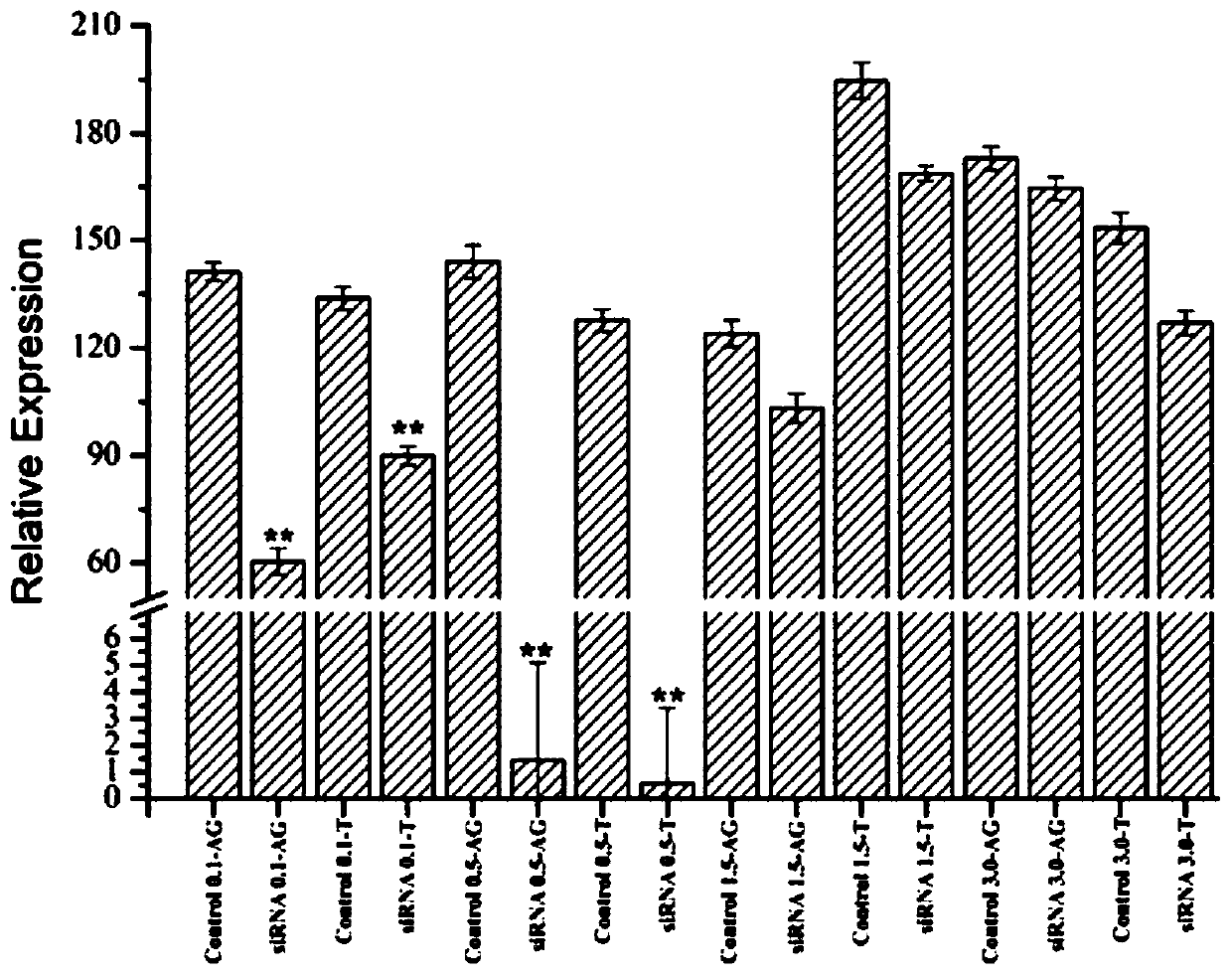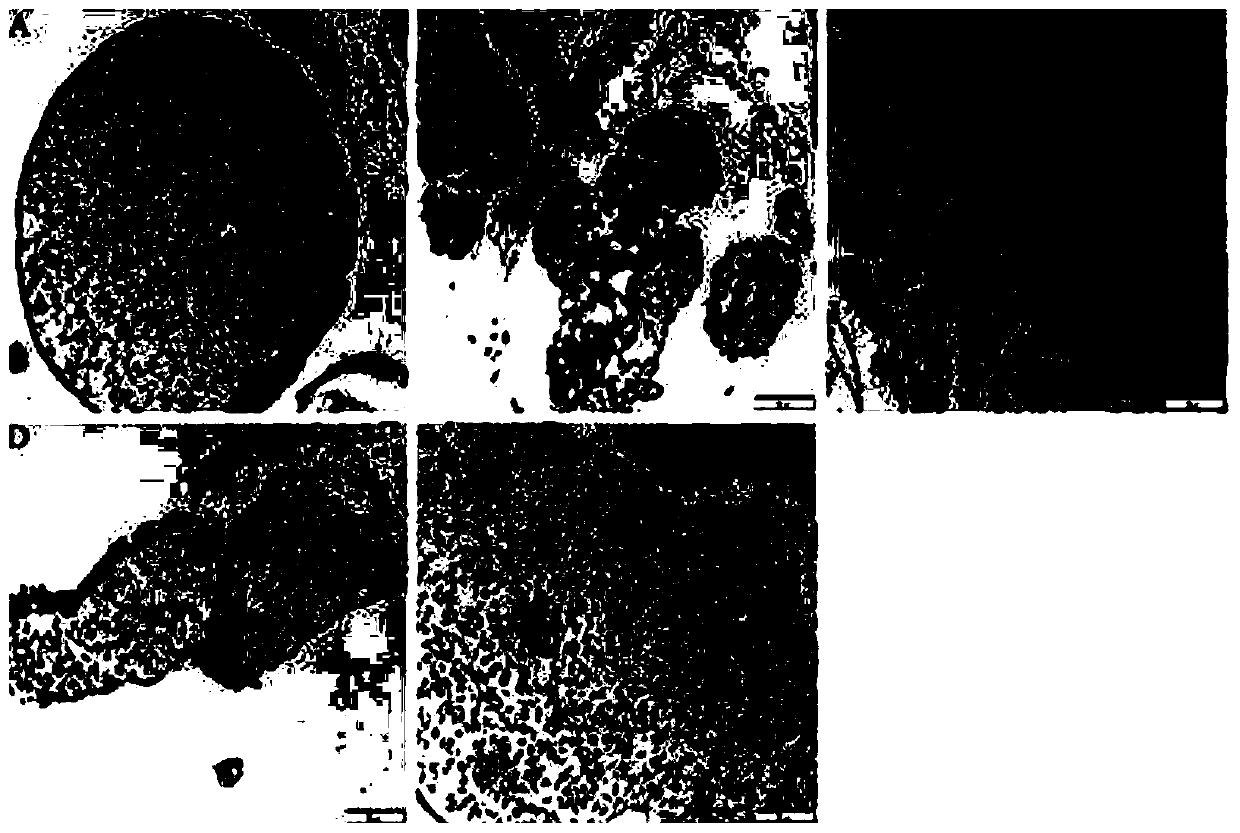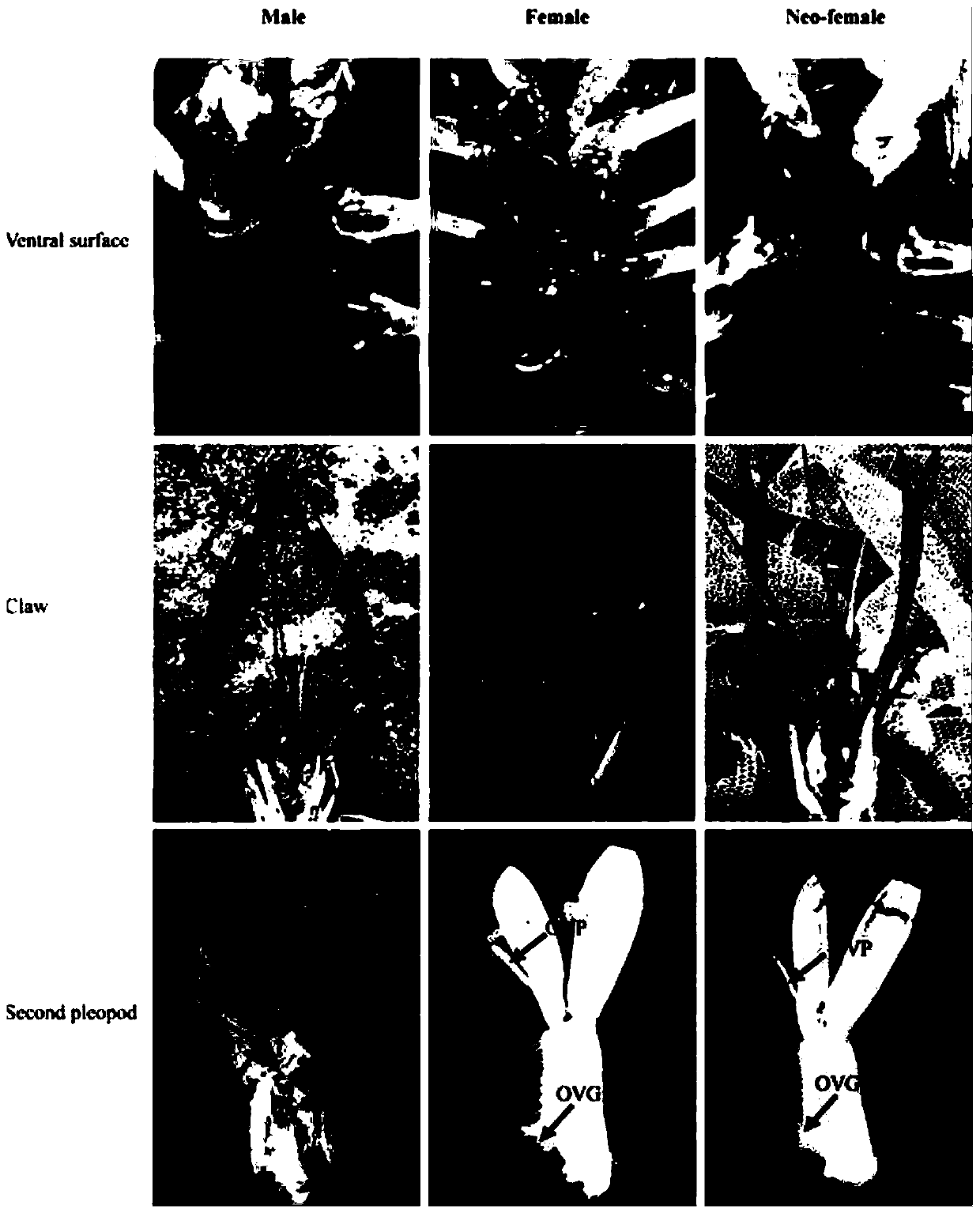siRNA-IR sequence for sex reversal of male macrobrachium rosenbergii and application of siRNA-IR sequence
A technology of Macrobrachium rosenbergii and male, which is applied in the field of siRNA-IR sequence for male Macrobrachium rosenbergii sex transition, can solve the problems of expensive synthetic kits, high injection dosage, and high cost, and achieve the reduction of larval immune stress response and injection dosage. Small, the effect of improving the survival rate
- Summary
- Abstract
- Description
- Claims
- Application Information
AI Technical Summary
Problems solved by technology
Method used
Image
Examples
Embodiment 1
[0021] Embodiment 1 can interfere and suppress the siRNA screening of IR gene
[0022] According to the sequence of Macrobrachium rosenbergii IR gene (accession number: FJ409645), an interference sequence called siRNA-IR was designed and synthesized; the device was designed using online siRNA design software (https: / / www.invivogen.com / sirnawizard / design.php) Select the siRNA-IR sequence (see Table 1). Exclude fragments containing SNP sites and non-open reading frames from the alternative siRNA-IR, and remove sequences with too high and too low GC content, and finally perform Blast analysis and discard non-specific binding sequences. After obtaining the ideal siRNA-IR sequence, four oligos were designed according to the requirements of the TaKaRa siRNA in vitro transcription synthesis kit, named oligo 1, oligo 2, oligo 3 and oligo 4 (see Table 1). These four oligo sequences were entrusted to Wuhan Qingke Biotechnology Co., Ltd. to synthesize them.
[0023] Table 1 Sequences o...
Embodiment 2
[0026] Example 2 Preparation of siRNA-IR double-stranded Oligo DNA
[0027] Dissolve the synthesized single-stranded Oligo DNA with sterilized distilled water to prepare a 100 pmol / μl DNA solution, and prepare the Oligo DNA annealing reaction solution according to the components in Table 2 and Table 3. The prepared Oligo DNA annealing reaction solution was placed in a PCR amplification instrument, treated at 95°C for 2 minutes, cooled to 25°C over 45 minutes, and then kept at 25°C for 10 minutes. This step enables a stack of single-stranded oligo DNA to be annealed to form double-stranded oligo DNA. Eventually two sets of Oligo DNA will be obtained and named OligoA and Oligo B.
[0028] Table 2 Annealing reaction solution of Oligo A
[0029] Reagent dose 10X Annealing Buffer 2μl 100 pmol / μl Oligo 1 2μl 100 pmol / μl Oligo 2 2μl RNase free dH 2 o
14μl
[0030] Table 3 Annealing reaction solution of Oligo B
[0031] Rea...
Embodiment 3
[0032] Example 3 siRNA-IR in vitro transcription
[0033] The Oligo A and Oligo B formed by the annealing reaction were used to prepare the RNA in vitro transcription reaction solution according to the components in Table 4, mixed evenly and then centrifuged slightly so that the transcription reaction solution was collected at the bottom of the EP tube. The prepared transcription reaction solution was placed in a PCR amplification instrument and reacted at 42°C for 4 hours. After 4 hours, the transcription reaction solution was taken out, and 2 μl of RNasefree DNase I (5 U / μl) and 1 μl of RNase T1 (5 U / μl) were added to the original reaction tube. After mixing slightly, put it into a PCR amplification instrument and react at 37°C for 2 hours. After in vitro transcription, siRNA-IR will be purified. Add 23 μl of water-saturated acidic phenol / chloroform / isopropanol (25:24:1) to the in vitro transcription reaction solution, mix it upside down and centrifuge at 10,000 rpm at 25°...
PUM
 Login to View More
Login to View More Abstract
Description
Claims
Application Information
 Login to View More
Login to View More - R&D
- Intellectual Property
- Life Sciences
- Materials
- Tech Scout
- Unparalleled Data Quality
- Higher Quality Content
- 60% Fewer Hallucinations
Browse by: Latest US Patents, China's latest patents, Technical Efficacy Thesaurus, Application Domain, Technology Topic, Popular Technical Reports.
© 2025 PatSnap. All rights reserved.Legal|Privacy policy|Modern Slavery Act Transparency Statement|Sitemap|About US| Contact US: help@patsnap.com



